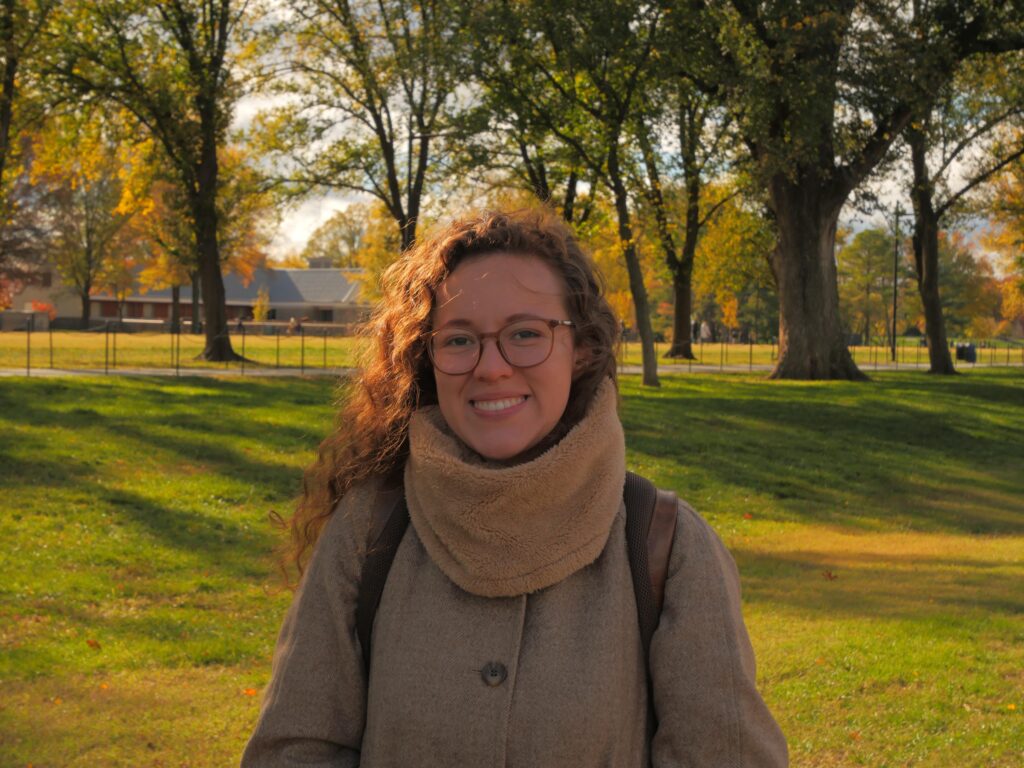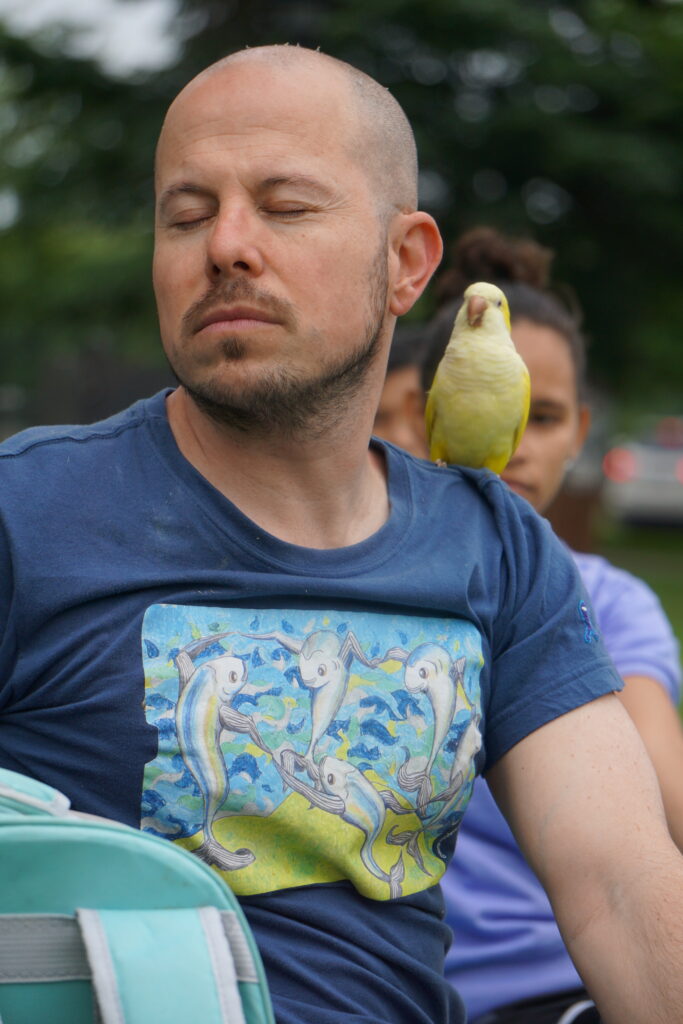
Dr. Laird W. Bergad
Executive Director
Dr. Laird W. Bergad is Distinguished Professor of Latin American and Caribbean history in the Department of Latin American and Latino Studies at Lehman College and the Ph.D. Program in History at the Graduate Center of the City University of New York. A member of CUNY’s faculty since 1980, he is the founding and current executive director of the CUNY Center for Latin American, Caribbean, and Latino Studies (2001).
He did his undergraduate work at the University of Wisconsin where he received a B.A. degree in History in 1970. An M.A. was completed at the University of Pittsburgh in 1974 and a Ph.D. was conferred in Latin American and Caribbean history in 1980. At the graduate level he specialized in economic, demographic, social history and data analysis of large-scale data bases.
Professor Bergad’s research interests have revolved around the social, economic, and demographic history of slave-based plantation societies in the 18th and 19th centuries. His first book, Coffee and the Growth of Agrarian Capitalism in Nineteenth-Century Puerto Rico (Princeton University Press, 1983), was based upon previously unutilized documentary materials housed at the Archivo General de Puerto Rico. This work revised the analytical framework for understanding Puerto Rican history prior to the United States occupation and annexation of 1898 by systematically demonstrating that the island’s economic structure had made the transition to a fully developed market economy during the 19th century.
He was one of the first foreign scholars to be granted unrestricted access to Cuban historical archives during the early 1980s, and his work there resulted in the publication of two books. The first, Cuban Rural Society in the Nineteenth Century: The Social and Economic History of Monoculture in Matanzas (Princeton University Press, 1990), is a detailed examination of the rise and evolution of the sugar plantation economy in the most important sugar-producing region of the world (the Cuban province of Matanzas) during the 19th century.
The second, The Cuban Slave Market, 1790-1880 (Cambridge University Press, 1995) [co-authored with Fe Iglesias García and María Carmen Barcia of the Cuban Institute of History] was the first empirical examination of the demographic and price structure of Cuban slave society during the island’s reign as the Caribbean’s leading sugar-producing and slave importing society.
Professor Bergad turned his attention to Brazil where he began work in 1992 in the historical archives of Brazil’s largest slave-holding province during the 18th and 19th centuries, Minas Gerais. The Demographic and Economic History of Slavery in Minas Gerais, Brazil, 1720-1888 (Cambridge University Press, 1999) is a detailed study of slavery in Brazil and has been translated into Portuguese as A Escravidão e a História Econômica e Demográfica de Minas Gerais, Brasil, 1720-1888 (São Paulo: EDUSC, 2005).
In 2007 Professor Bergad published The Comparative Histories of Slavery in Brazil, Cuba, and the United States was published by Cambridge University Press.
Hispanics in America: A Social, Economic, and Demographic History, 1980 – 2005 was published by Cambridge University Press in 2010 and was coauthored with Prof. Herbert S. Klein, Emeritus Professor of Latin American History, Columbia University.
Professor Bergad’s most recent book, co-authored with Prof. César Ayala of UCLA is titled AGRARIAN PUERTO RICO: Reconsidering Rural Economy and Society, 1899 – 1940 (Cambridge University Press, 2020) was awarded the Manual Moreno Fraginals prize for the best book on Caribbean economic history from the Caribbean Economic History Association.
Professor Bergad is currently writing a demographic, economic, and social history of the Latino population of the New York City metropolitan area, 1900 – 2020.
Professor Bergad has won a number of internationally recognized awards. He was a Guggenheim Fellow in 1986/87 and won a research grant from the Social Science Research Council in the same years. He was a Fulbright Fellow at the Universidade Federal de Minas Gerais in 1992/93 and was awarded a second Fulbright to teach at the Universitat Pompeu Fabra, Barcelona, Spain in 2000 (Declined). He also won a National Endowment for the Humanities Fellowship for University Teachers in 1996 and 1997.
Phone: 212-817-8465
E-Mail: lbergad@gc.cuny.edu

Dr. Mila Burns
Associate Director
Dr. Mila Burns’s interdisciplinary profile influences her research, with an emphasis on media, anthropology, and history. For almost two decades, she has been a prominent journalist in Brazil and New York. She is currently the anchor and editor-in-chief of America News, a newscast dedicated to the Latino community broadcast at TV Globo International.
Professor Burns is currently working on a book about the Brazilian influence on the Chilean 1973 coup d’état. Based on recently declassified documents from Brazilian and Chilean archives, it looks at how the Brazilian government, diplomats, and exiles perceived Salvador Allende’s “road to socialism” and acted to impact it.
Her most recent book, Dona Ivone Lara’s Sorriso Negro (Bloombsbury Academic, 2019 and Editora Cobogó, 2021), investigates Dona Ivone Lara’s album to address broader questions about feminist and black movements in the early 1980s Brazil. At the time, the country’s long-lasting dictatorship was coming to an end and the Brazilian samba composer, a black woman, called for change in her lyrics.
Phone: 212 – 817 – 8441
E-Mail: mila.burns@lehman.cuny.edu

Lidia Hernández-Tapia
Administrative Director
Lidia is a Ph.D. Candidate in the Latin American, Iberian and Latino Cultures Program at the Graduate Center, CUNY. She holds a Master’s degree in Journalism from the Craig Newmark Graduate School of Journalism and a B.A. in Journalism from the University of Havana, Cuba. Her academic research focuses on contemporary Cuban visual culture, and literature; and on the intersection of race, media and performance studies.
Phone: 212 – 817 – 8466
E-Mail: lhernandeztapia@gradcenter.cuny.edu

Marco Castillo
Director of Research
Marco Castillo is a Ph.D. candidate in sociology at the City University of New York’s Graduate Center. His research seeks to understand political violence in dictatorial and post-dictatorship settings, political resistance, and how they relate to the production of knowledge and policy. He focuses mainly on Paraguay as a case study to examine how processes of dictatorship and democratization evolve in terms of repression against minorities, rights, citizenship, and inequality in Latin America.
Phone: 212 – 817 – 8466
E-Mail: mcastillo1@gradcenter.cuny.edu

Fátima Vélez
Events Coordinator
Fátima Vélez is a writer, professor, cultural producer, and Ph.D. candidate in Hispano-American Literature and Cultures at the Graduate Center, CUNY. She earned her BA in Literature from Universidad de los Andes (Colombia) and MFAs in Creative Writing from Universidad Nacional of Colombia and New York University. Fátima has authored the poetry books “Casa Paterna,” “Del Porno y las babosas,” “Diseño de interiores,” and the novel “Galápagos.”
Beyond her writing, she co-founded the artist residency “Residencia en la Tierra” in Colombia’s coffee region and curated the Latin-American poetry series at ID Studio Theater in the South Bronx, New York. She is also a member of the Latin American poets and artist collective “Como un Lugar.”
Fátima’s main interests include contemporary Latin American Literature and Culture, focusing on decolonial feminism, ecofeminism, queer/cuir theories, critical geography, and Civil Rights movements and activism.
Fátima studies how mothers have borne severe repercussions from the wars initiated by the nations of Argentina, Peru, and Colombia, with direct support from the United States, targeting a population segment labeled as communist. It has primarily been women, especially mothers, who faced and defied executive, judicial, and military powers in their relentless attempt to discover the whereabouts of their forcibly disappeared children. Mothers, through their activist practices, have exposed the State as a machine of death and impunity. But why mostly or primarily mothers? The question seems rhetorical, and the answers are self-evident: because those forcibly disappeared and killed are their children, and it is natural for mothers to care about their children. But why is this so? With these simple questions, Fátima’s research explores motherhood unbound from the patriarchal mandate and essentialist vision of womanhood. Denaturalizing motherhood and countering the sacrificial role of the mother under patriarchal capitalism are crucial tasks for feminist reflection. In her dissertation, tentatively titled “Against the War against Mothers,” Fátima interrogates the patriarchal foundations of motherhood under capitalism and explores embodied and textual imaginaries of alternative mothering practices emerging in response to patriarchal, colonial, and neoliberal violence.
Phone: 212 – 817 – 8466
E-Mail: fvelez@gradcenter.cuny.edu

Ana María Granados
Social Media Fellow
Ana María Granados Romero holds a degree in Philosophy from the Universidad Nacional de Colombia and a Master’s in Anthropology from the Universidad de los Andes in Bogotá. She is currently pursuing a Ph.D. in Latin American, Iberian, and Latino Cultures at The Graduate Center, City University of New York (CUNY). Her research focuses on official and cultural narratives about guerrilla fighters and drug traffickers within the context of the internal armed conflict in Colombia and the war on drugs in Mexico.
Phone: 212 – 817 – 8466
E-Mail: agranadosromero@gradcenter.cuny.edu

Diomelca Rivas
Research Fellow
Diomelca is a PhD student in the History Department at The Graduate Center, CUNY. Her research focuses on the interconnection between the expansion of public education and the consolidation of nation-state formation in the Dominican Republic during the Trujillo dictatorship.
Phone: 212 – 817 – 8466
Email: drivas@gradcenter.cuny.edu

Juan Acevedo
Graphic Coordinator
Juan is a PhD Candidate in Political Science specializing in international relations and international political economy with a special focus on multilateralism and leadership in the Global South. He came to the CLACLS after spending some years working on international trade in China, Brazil, and Colombia, where he was also a professor. He has contributed to Foreign Affairs Latin America and Africa is a Country and is a co-author of the volume Diplomatic Strategies of Nations in the Global South (Palgrave, 2024). He is also a co-founder and coordinator of the China at CUNY Initiative, the Human Rights Hub, and the Center for the Study of the Holocaust, Genocide, and Crimes Against Humanity. Currently, Juan is studying the political effects of structural power and status in multilateralism. See his latest article here.
Phone: 212 – 817 – 8466
Email: jacevedo@gradcenter.cuny.edu


